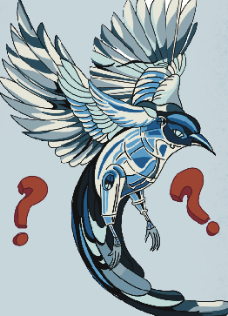While many inbound college students opt for popular majors such as computer science, business or biology, others study niche majors that allow them to study smaller areas of expertise in-depth, giving them an advantage if they choose to pursue said field.
One example is apiology, the scientific study of honeybees, which digs deep into their physiology, behavior, genetics, diseases, ecology, products and management. Learning more about honeybees can improve one’s understanding of their environment and make them think deeper about the treatment of animals. Furthermore, students learn how to keep a bee colony happy and rid them of bacteria like the American and European foulbrood, viruses such as sacbrood, parasites and the nosema disease. They also explore bee genetics to control the crossbreeding of honeybees and secure desired traits. Lastly, by taking this course, students are able to understand topics like how to produce honey, pollinate the plants of vegetables and identify fruits that need to be pollinated and produce beeswax.
Another specific college major is auctioneering, the study of auction management, which prepares individuals for professional careers in the field. This major includes learning about the auction and bid system, salesmanship and advertising. Students emerge with an associate’s degree and with extensive knowledge in skills used in auctioneering. They learn more than just numbers — they learn how to connect to others and understand how to change their voice to better fit a fast speaker.
“Auctioneers represent sellers but should also be able to work with buyers,” according to the Princeton Review. “One should have a strong voice, a good sense of humor, and an agile mind.”
Finally, Egyptology, the scientific study of all aspects of ancient Egypt, offers first hand experience with the ancient monuments and sites. Students dig into the rich history of the country, more than that which was taught in middle school.
“[Egyptology] focuses on the archaeology, language, literature, history, religion and art of that culture, but in recent decades the geographical scope of the field has been expanded to include research into Nubia (modern northern Sudan), which maintained close links with Egypt and had cultural affinities with it for several millennia,” according to the University of Cambridge.
Not only do Egyptology students learn about the successful accomplishments of the empire, but they also gain the skills to preserve Egypt’s stories and pass them onto future generations. By majoring in this, students can pursue careers in the following fields: museology, tourism, education, journalism and, of course, Egyptology.
Despite the vast differences between each major, their effects remain the same. They all help students deepen their interest in a subject and learn more about topics that are not usually taught in colleges, leading to a higher diversity in college education. College student populations are decreasing, according to The Guardian. By having these majors, colleges ensure that their students learn in unique ways that encourage them to stay focused and finish college. Whether it be majors like apiology, auctioneering or Egyptology, students can advance their knowledge and preserve and change the world for the better.






















